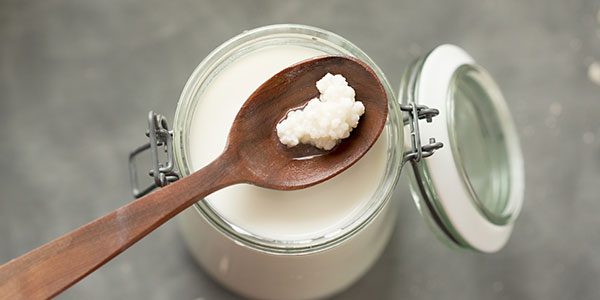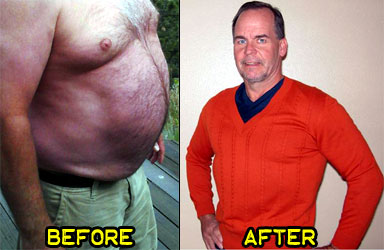Can Probiotics Lead to More Weight Loss?
Can Probiotics Lead to More Weight Loss?
The term "probiotics" keeps showing its face in the health world. So should they be sought out for weight loss and can the human body benefit from their use?

The term "probiotics" keeps showing its face in the health world. Commonly recognized in yogurt containers, what makes probiotics seem so appealing? Should they really be sought out and can the human body benefit from their use?
What Are Probiotics?
Probiotics may often be mistaken for its helpful counterpart, prebiotics. But the similar words have vastly different characteristics. Prebiotics are indigestible carbohydrates and serve as a food source for probiotics. Probiotics are considered to be a type of "good" live bacteria that offers health benefits to its host. Sources include yogurt, sauerkraut, soft cheeses, fermented foods, and probiotic pills and supplements. Probiotics on foods are generally identified as live cultures, commonly Lactobacillus acidophilus and Bifidobacterium longum.
But when it goes back to probiotics being described as live bacteria, what exactly are "heat-killed" probiotics? There is a growing interest in the paradox between live and dead probiotics. When heat-killed, the cells are obtained from bacteria populations and inactivated. Though it is known probiotics are beneficial, determining their most favorable condition is presently unclear. Nonetheless, probiotic use has established health benefits and may even contribute to weight loss.
Health and Weight Loss Benefits of Probiotics
The roles of probiotics are often specific to the gastrointestinal tract. Probiotics have shown to alleviate associated symptoms of inflammatory bowel disease and reduce acute diarrhea in children. Probiotics can also prevent foodborne illnesses by inhibiting Salmonella and Helicobacter pylori and exerting an anti-inflammatory response. Heat-killed probiotics have been further explored for benefiting immune health, as studies suggest reduced infections and incidences of the common cold. Nonetheless, the combined roles of either living or heat-killed probiotics can contribute to improved gut health and improved immunity. Additionally, the use of dead and heat-killed may increase product stability, thus leading to food safety and an increased shelf-life.
But as if those benefits weren't appealing enough, the use of probiotics may result to weight loss. Though the research is slim, weight loss with probiotic use seems to stay consistent. Studies have shown subjects taking a probiotic has resulted into more weight lost compared to subjects without one. So how may probiotics actually shed off weight? Previous research has linked obesity and diabetes to microbiome imbalances. The microbiome encompasses trillions of microorganisms living in the body, with both good and bad bacteria occupying the gut. When probiotics (the "good" bacteria) are present, researchers are speculating it causes a beneficial shift in the microbiome and contributes to weight loss and maintenance.
Should You Be (PRO)biotics?
First off, individuals should not seek out probiotics for a "quick fix" and "magic pill" to weight loss. Though research suggests its use for weight loss, further research needs to be developed and expanded. Additionally, more research is anticipated to address differences between alive or dead probiotic cultures. But pushing all future research aside, the current use of probiotics has shown to keep the body's microbiome happy and healthy. Not only may it shed off weight, but can ultimately improve digestion and immune health.
References:
Chen MF, Weng KF, Huang SY, et al. Pretreatment with a heat-killed probiotic modulates monocyte chemoattractant protein-1 and reduces the pathogenicity of influenza and enterovirus 71 infections. Mucosal Immunology. Available at: http://www.nature.com/mi/journal/vaop/ncurrent/full/mi201631a.html.
CA Adams. The probiotic paradox: live and dead cells are biological response modifiers. Pub Med. Available at: http://www.ncbi.nlm.nih.gov/pubmed/20403231.
-
If You Want To Lose Weight Fast, Put A Your Lizard On A Leash!
It seems these days that everyone wants to lose weight fast. Yet t
-
How Effective Is Weight Loss Surgery?
For severely overweight individuals that have failed to see results fr
-
Understand some useful facts on Dieting for Weight loss – Dieting Guidelines – Health
Everybody these days is inside the look out to have a controlled body
-
How To Lose Weight Without So Much Hassle
People talk about weight loss like it is unattainable, but it is
-
Quick Weight Loss Diets Makes You Fatter
Quick weight loss diets are very popular now days. A lot of people cho
-
3 Diet Plans To Lose Weight Fast
3 Diet Plans to Lose Weight Fast There are many diet plans to lose we
- DON'T MISS
- Key Tips from the Fastest Solution to Eliminate Weight
- Choose To Lose The Simplicity Of Weight Loss And Understanding Emotional Eating
- 4 Empowering Solutions to Take Back Control of Your Body & Self-Esteem
- The Best Coffee for Weight Loss
- Healthy Eating Tips
- I Lost 160 Pounds 3 Years Ago. Heres How Ive Kept The Weight Off
- What is Mesothelioma
- 7 Weight Loss Tips 4 Kids and Their Families
- Balance 4 Hormones for Fat Management and Weight Loss
- A Solid Fitness Resource Is Wonderful




